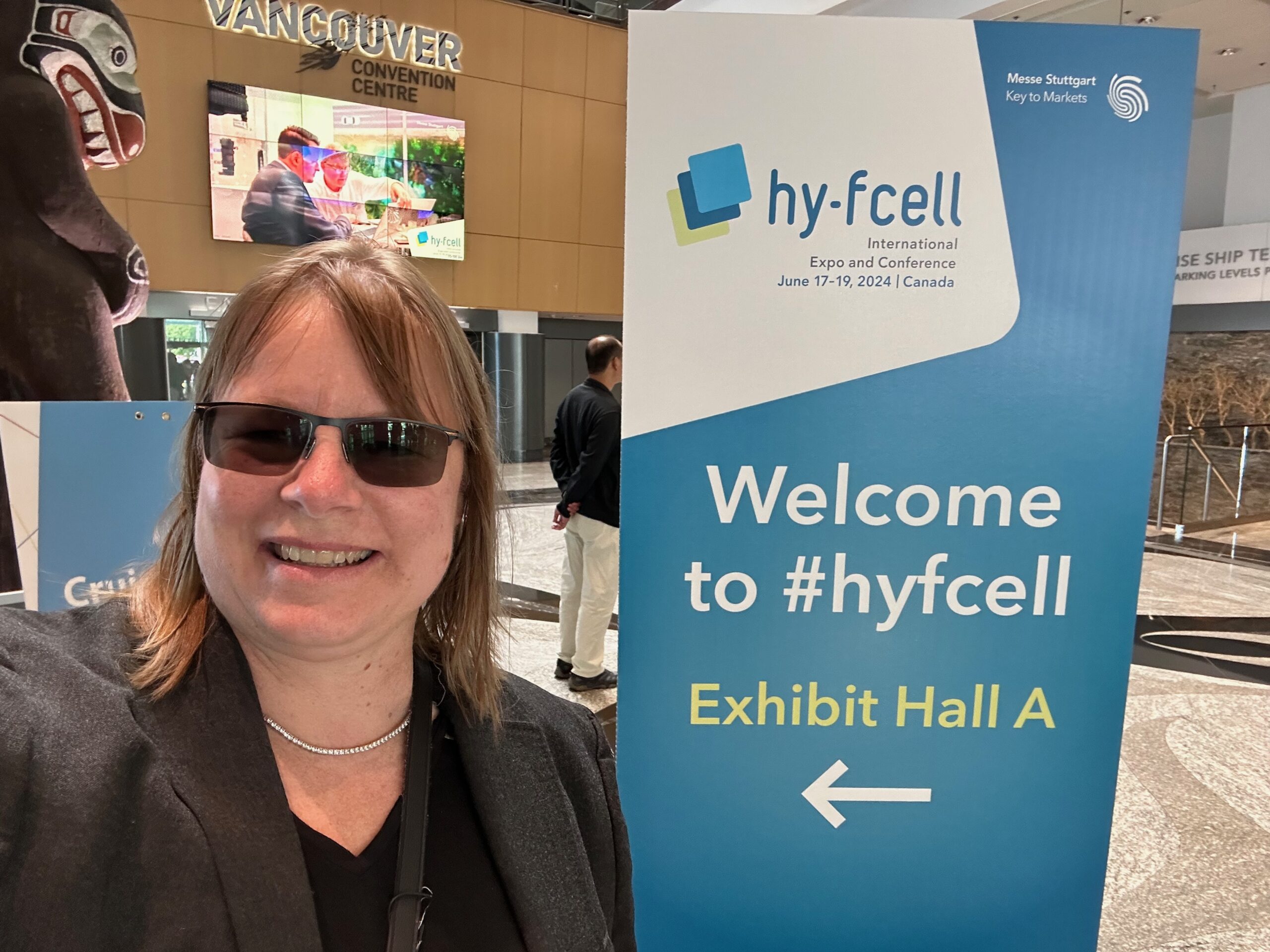
Vancouver, BC – written June 19th, 2024 – The hy-fcell Expo and Conference, held on June 18-19th, 2024, at the Vancouver Convention Centre East was a pivotal event in the hydrogen industry, spotlighting cutting-edge advancements and collaborative opportunities. A highlight of this year’s conference was the German Pavilion, sponsored by “Made in Germany” and the Federal Ministry for Economic Affairs and Climate Action, showcasing Germany’s leadership in hydrogen technology and innovation. The next hy–fcell – International Expo and Conference will take place on 8 and 9 October 2024 at the Stuttgart Trade Fair Centre in Germany.

Organized by the Stuttgart Messe in collaboration with the Canadian German Chamber of Industry and Commerce Inc., the German Pavilion benefited from the expertise of Nicolai Pogadl, the Senior Manager and Head of the German Secretariat of the Energy Partnership with Canada, based in Montreal. Pogadl’s role underscored the event’s international significance, fostering cross-border partnerships and driving forward the global hydrogen agenda.

Photo: Left to right: Nicolai Pogadl, Senior Manager of the Canadian German Chamber of Industry and Commerce; Andreas Truckenbrodt, Consultant for Clean Energy and Prof. Dr. rer. nat. Michael Eikerling from the Forschungszentrum Jülich.
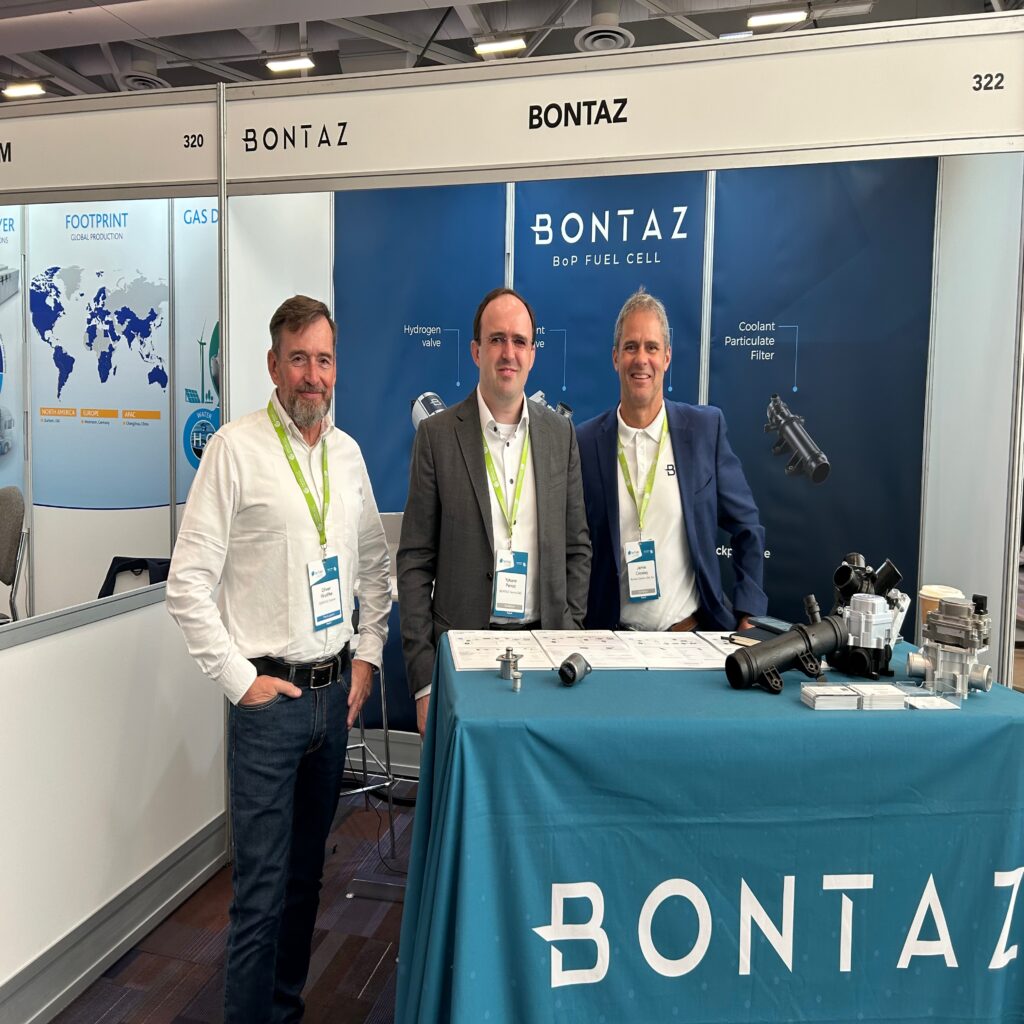
Left to right: Oliver Wudtke, BONTAZ Centre, Sales Manager of the Business Unit Fuel Cell responsible for sales management and business development based in Marnaz, Auvergne-Rhône-Alpes France, Yohann Perrot, Fuel Cell Business Unit Director at Bontaz in the Greater Besancon Area, France and Jamie Crowley, New Businesses Development Manager-H2 Fuel Cell & Battery-Bontaz, in Detroit, Michigan, USA
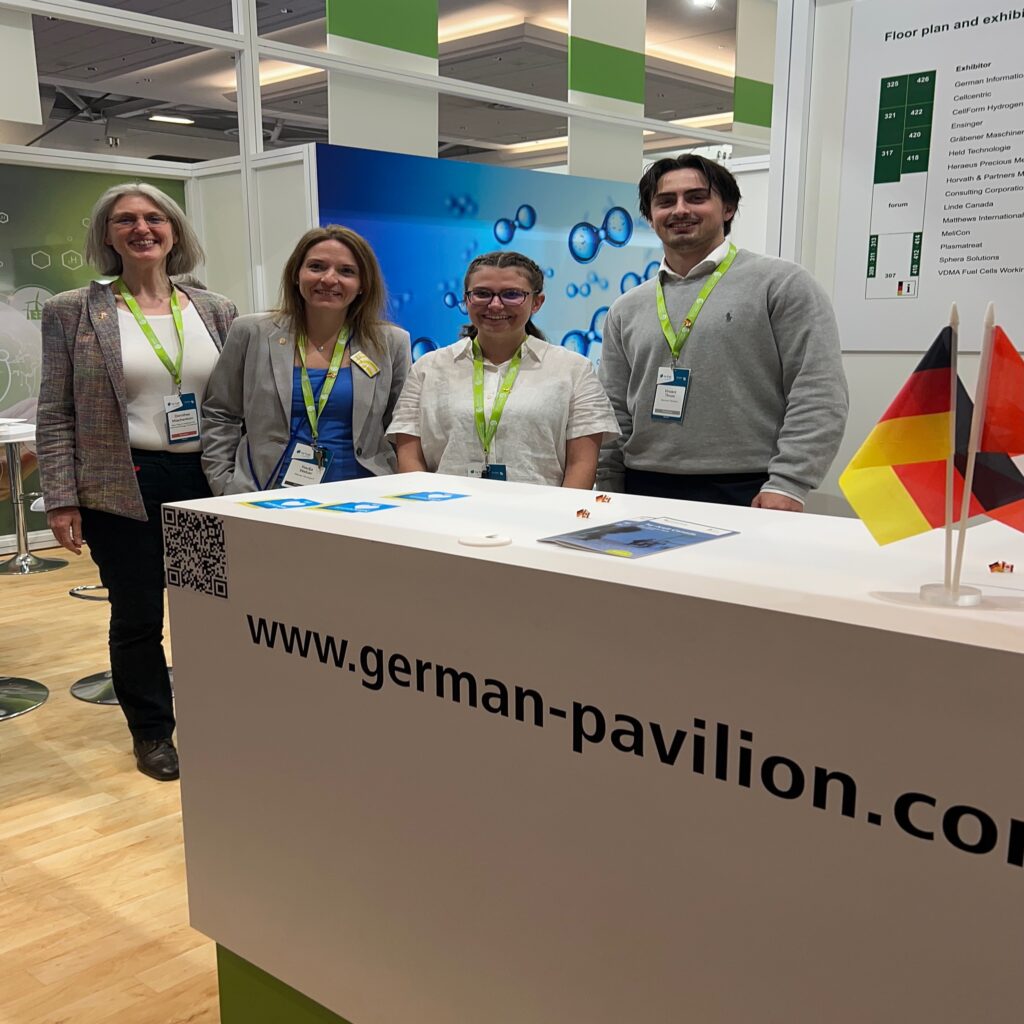
Left to right: Dorothea Mischenborn from the TransHyDE Max-Planck Institute, Nadja Weber, Team Director Outbound / Messe Stuttgart International, Amy Daiminger, UBC Student and Vincent Thrum, Mechanical Engineering B.Eng Graduate from BCIT
Hydrogen has emerged as a formidable disruptor in the energy sector, swiftly transitioning from a niche research interest to a central focus of innovation and development. Once considered an underdog, hydrogen’s potential for clean, efficient energy has catalyzed a surge of investment and interest from both public and private sectors. This rapid ascension is driven by hydrogen’s versatility and promise to revolutionize multiple industries, including transportation, power generation, and industrial processes.
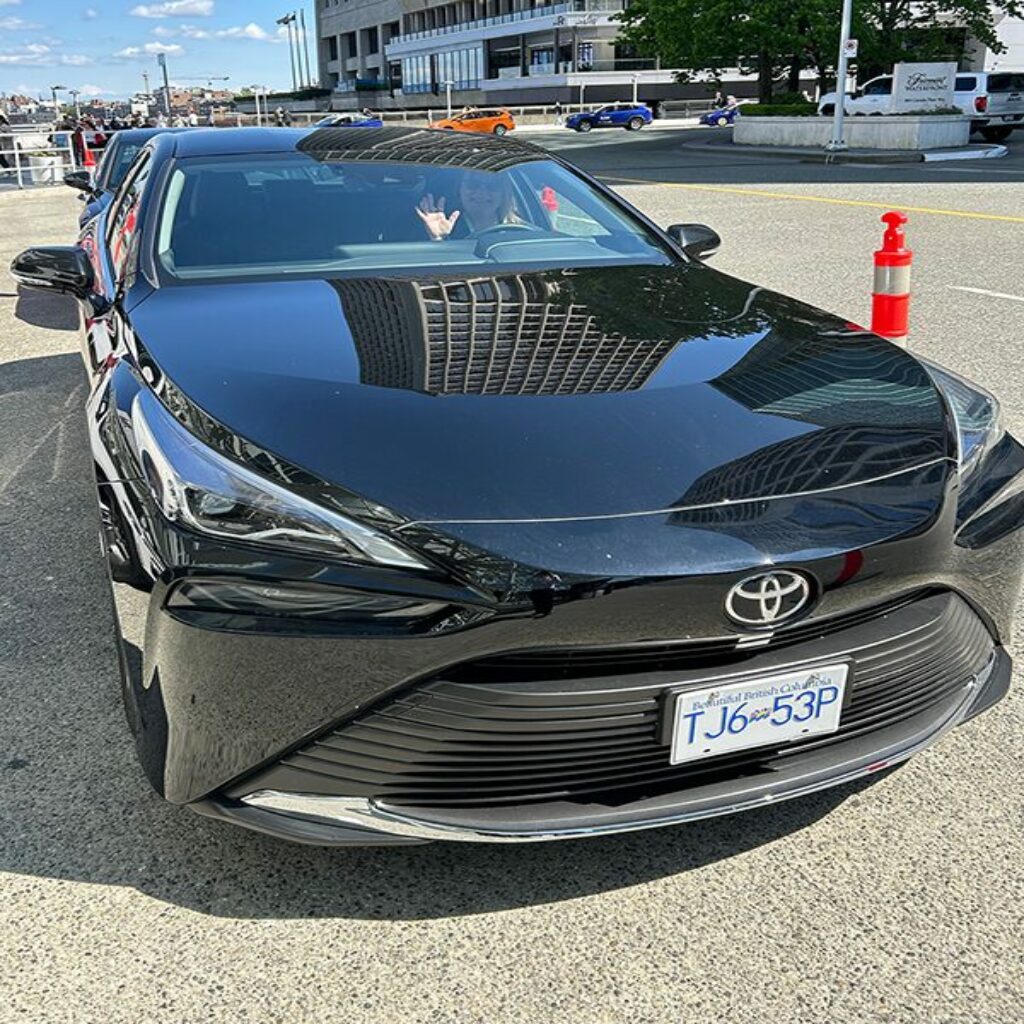


We were given the opportunity to test drive Toyota’s ground-breaking Mirai, the world’s first production hydrogen fuel cell sedan on the city streets of Vancouver. Very smooth driving & great acceleration.
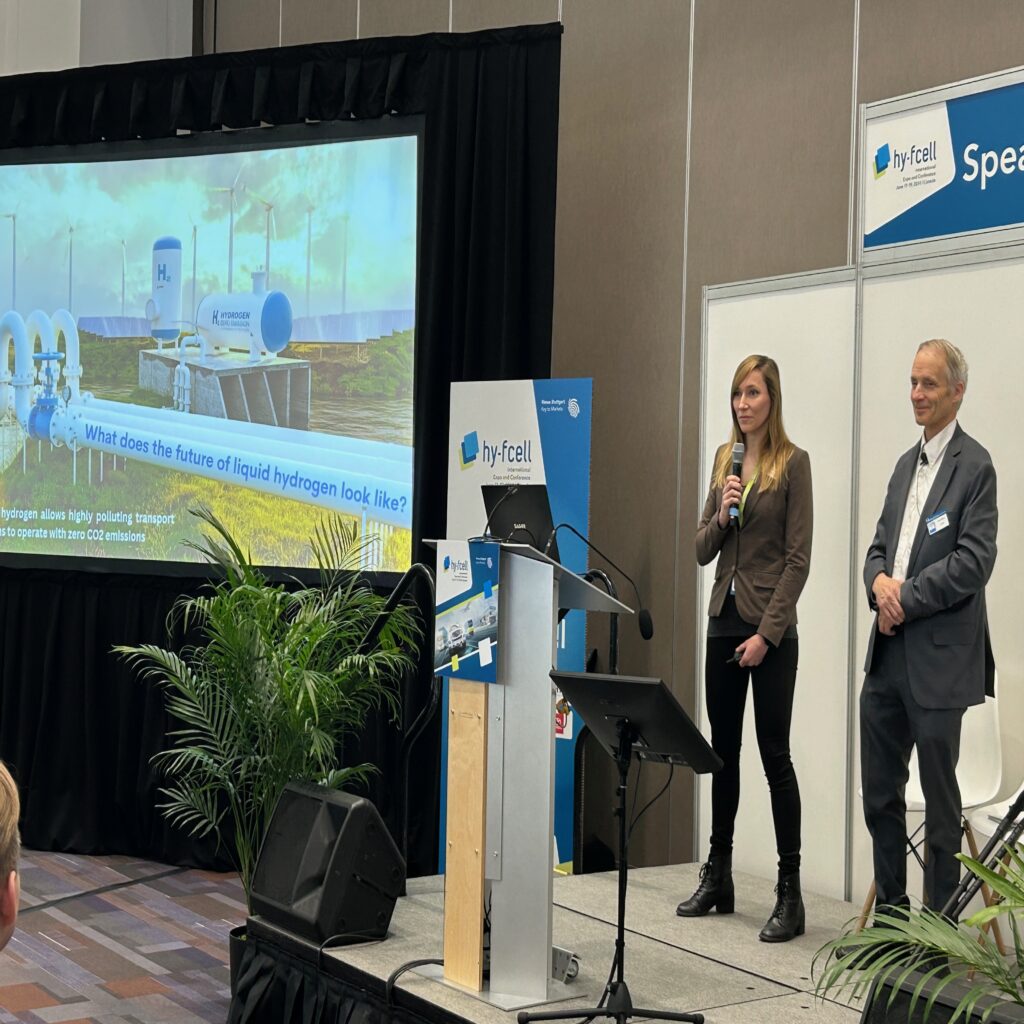
PANEL: Liquid Hydrogen: Advantages, Challenges, and Quantum’s Solutions
Its ability to integrate with renewable energy sources and reduce carbon emissions has positioned hydrogen at the forefront of global research initiatives, challenging established energy paradigms and paving the way for a sustainable future. As a result, hydrogen is not just participating in the energy conversation but is actively reshaping it, highlighting its role as a key player in the quest for innovative and sustainable energy solutions.
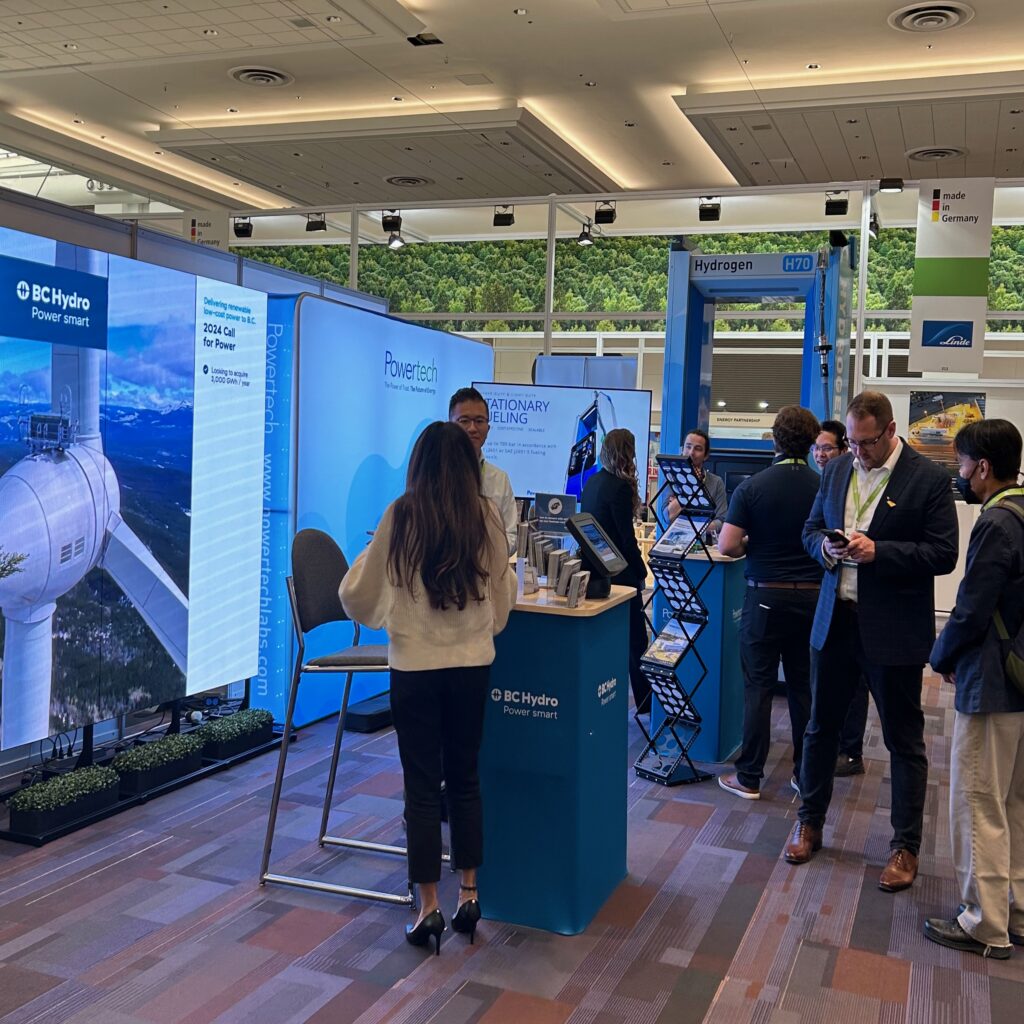
At the conference, attendees had the opportunity to listen to a variety of experts on critical topics in the hydrogen industry. Dorothea Müschenborn from TransHyDE discussed transport and storage infrastructure for green hydrogen. Dr. rer. pol. Ulrich Fahl from the Max Planck Institute and the University of Stuttgart addressed the prospects and challenges of connecting the Canadian and German energy systems via hydrogen. Dr.-Ing. Ulrike Beyer from the Fraunhofer Institute for Machine Tools and Forming Technology explored joint electrolyser production as a chance for a hydrogen bridge between Canada and Germany with the Reference Factory.H2.
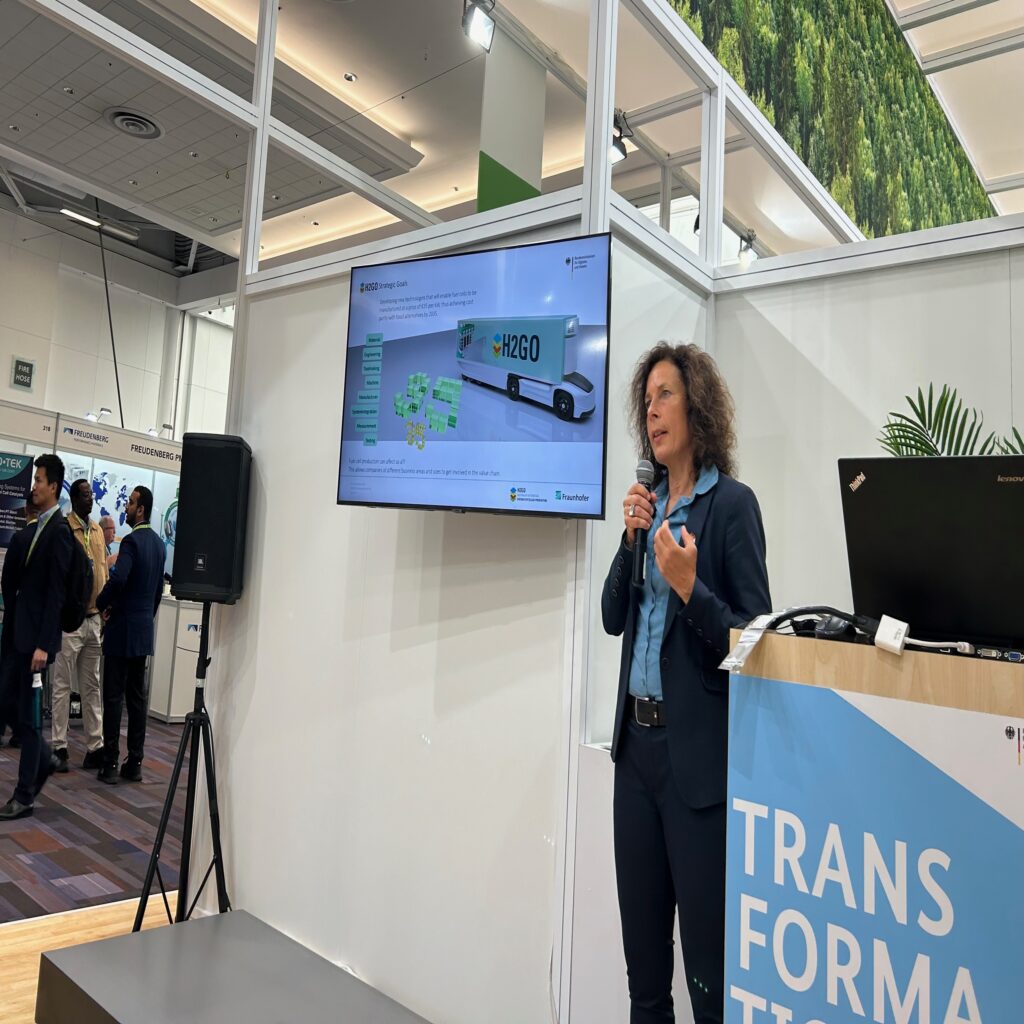
A quote by Dr. Beyer: “The Reference Factory H2 is based on research and development results for intensifying hydrogen system production. The aim is to find Canadian partners for fields of action that are still open and thus improve the Reference Factory H2 value creation community technologically. Coupled with utilization scenarios specially developed for Canada, this could result in joint electrolyser production and a hydrogen bridge between Canada and Germany with a constant supply of new wind for the intensification of electrolyser production.
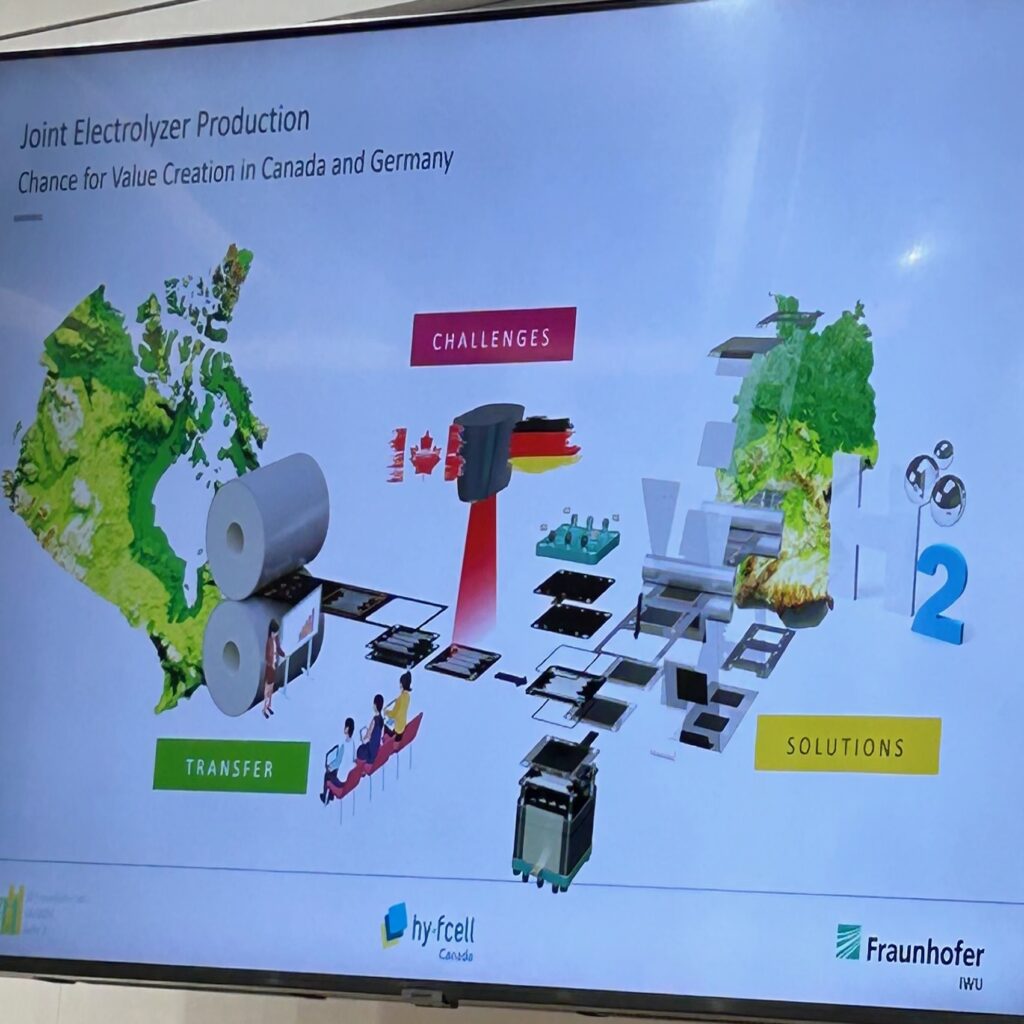
Prof. Dr. rer. nat. Michael Eikerling from Forschungszentrum Jülich highlighted how harnessing German-Canadian R&D knowledge and infrastructure can accelerate energy materials from idea to innovation.
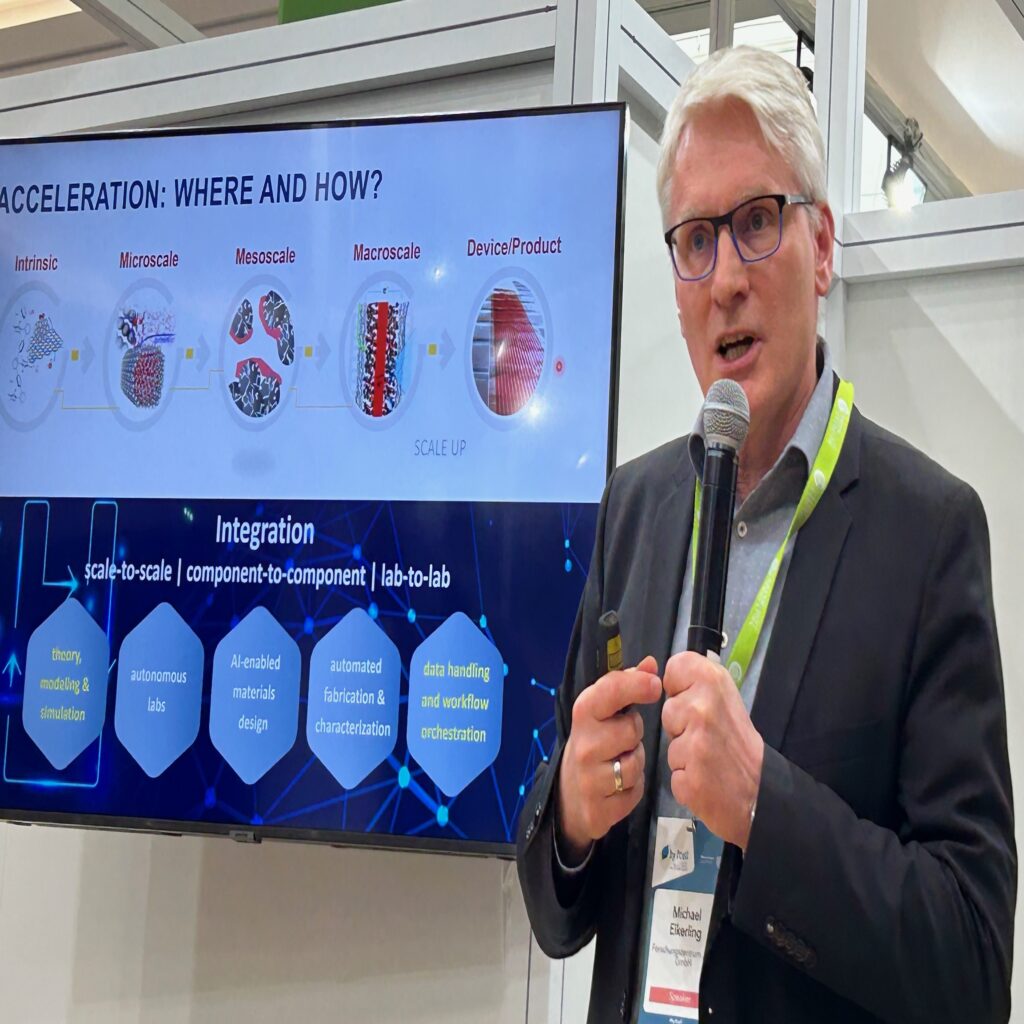
I had a chance to watch the speeches of Dr. Beyer and Dr. Eikerling – very interesting talks that demonstrated both know-how and opportunities to strengthen bilateral economic relations between Germany and Canada. One example of a partnership between Germany and Canada is the German-Canadian Materials Acceleration Centre “https://www.fz-juelich.de/en/iek/iek-13/divisions-1/artificial-material-intelligence/german-canadian-materials-acceleration-centre-gcmac” (GCMAC)
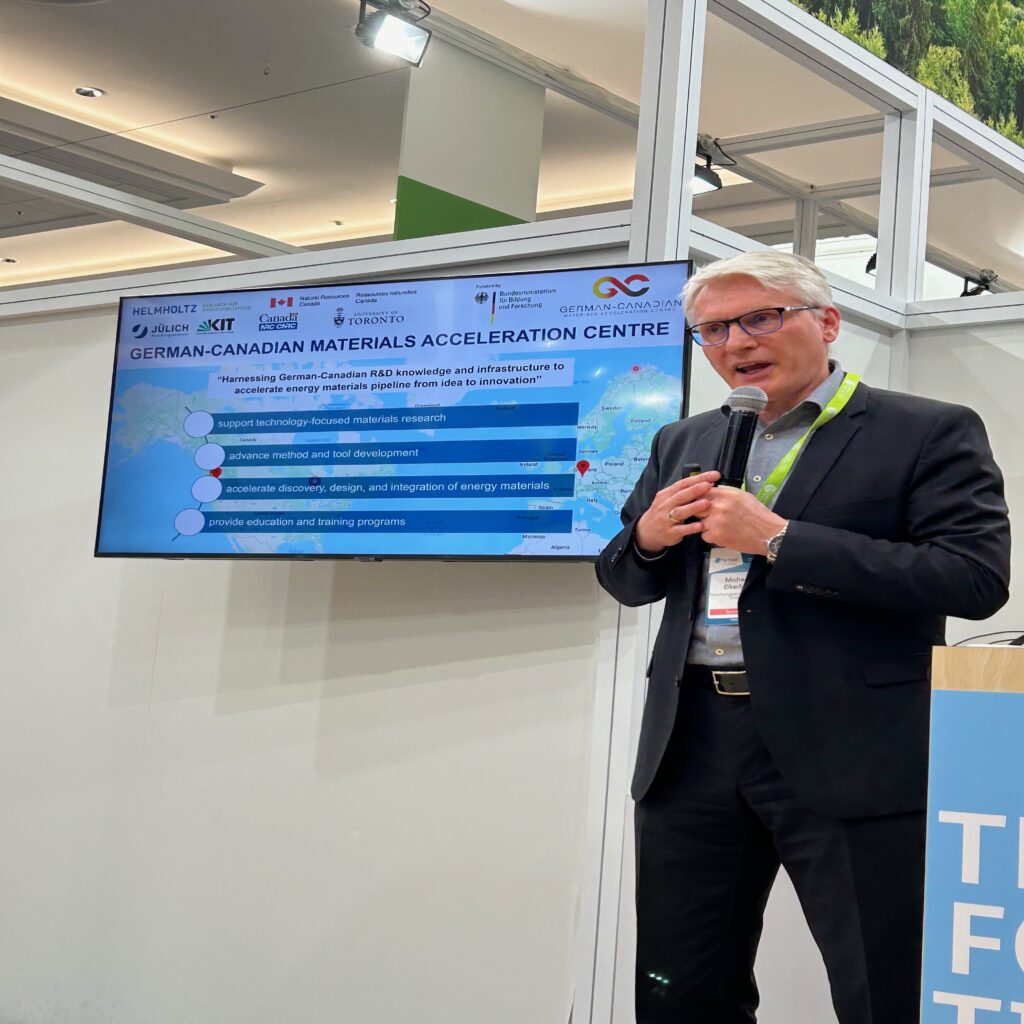
Polymer electrolyte membrane (PEM) fuel cells, also called proton exchange membrane fuel cells, use a proton-conducting polymer membrane as the electrolyte. Hydrogen is typically used as the fuel. These cells operate at relatively low temperatures and can quickly vary their output to meet shifting power demands.
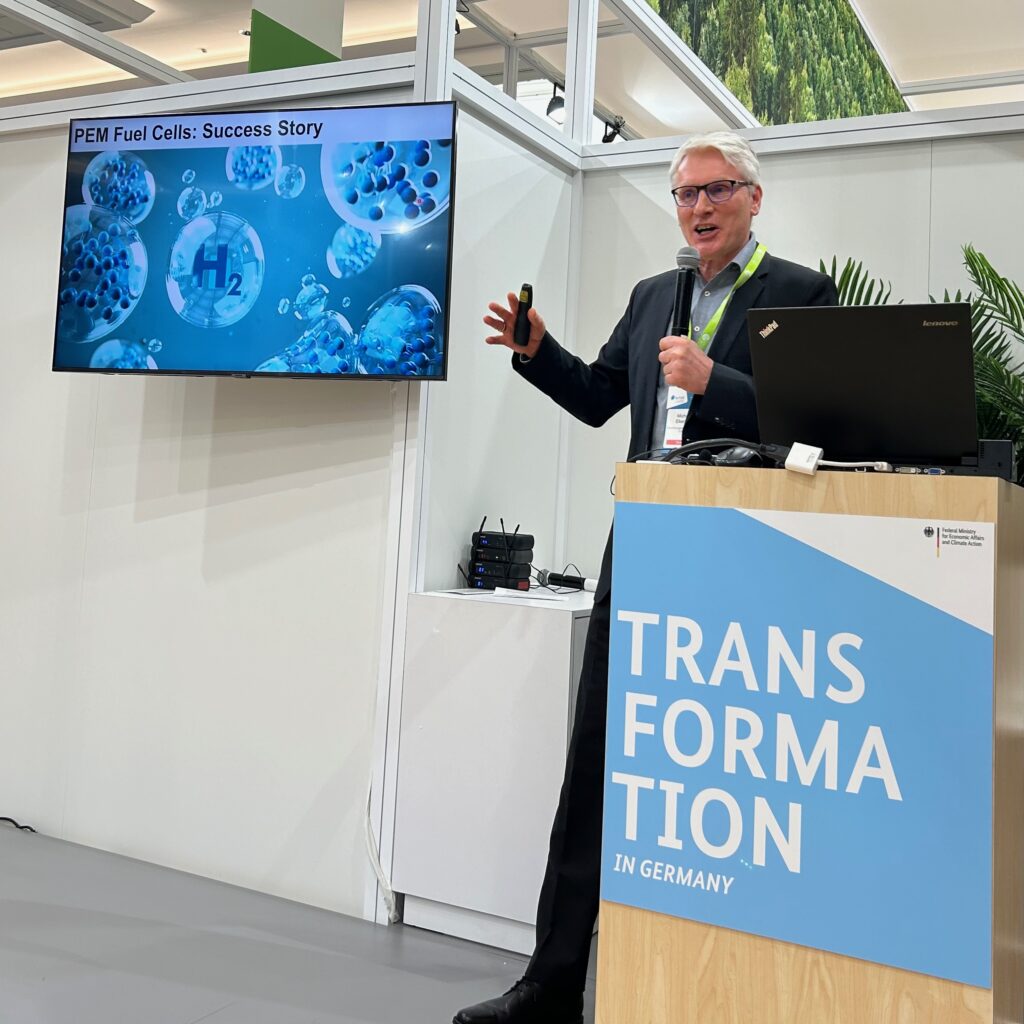
Some words from Dr. Eikerling “The ever-escalating demand for highly performing and environmentally benign energy technologies drives research on electrochemical materials and devices. In this realm, theory, modeling and simulating, enhanced with accelerated learning from AI-driven analytics, provide increasingly powerful methods and tools to unravel the relationship among structures, properties and function of materials, and, based upon that, guide and orchestrate the design, fabrication and assembly of tailor-made materials.”
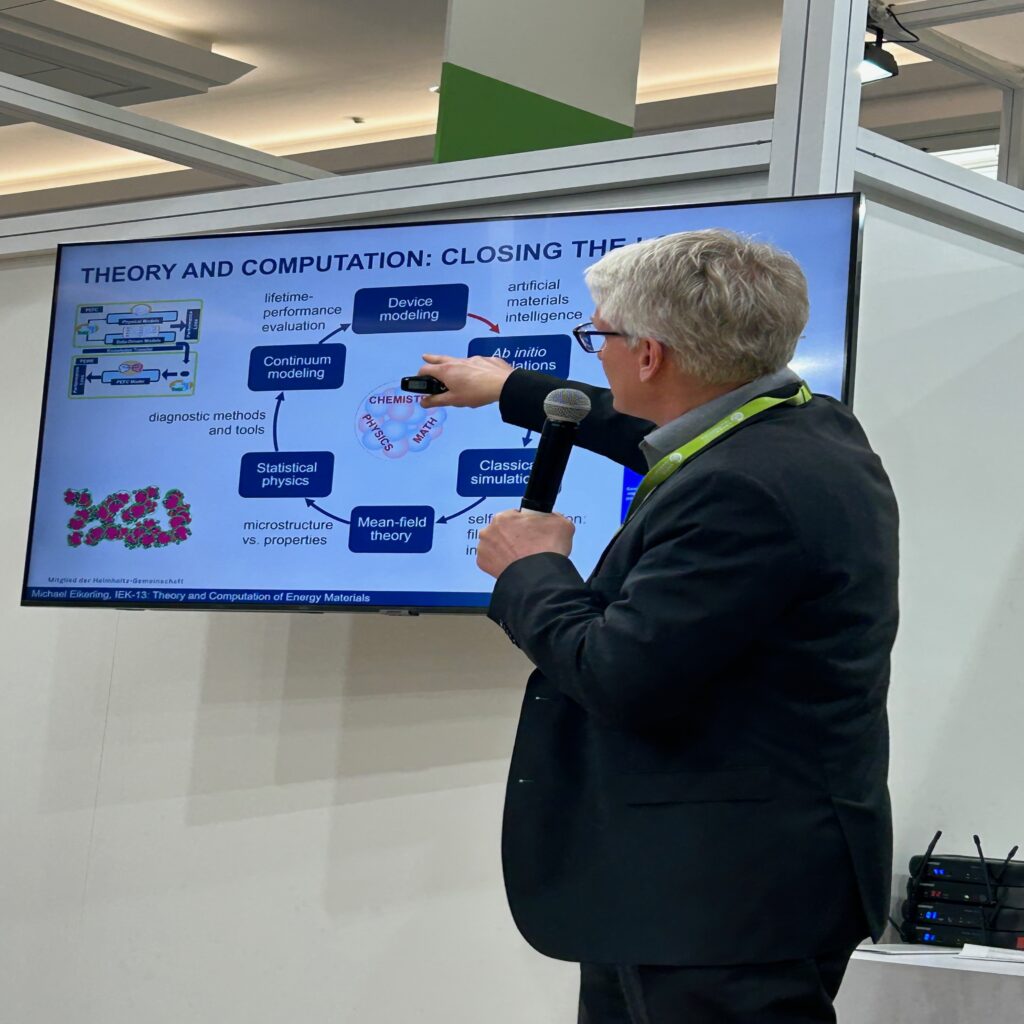
Lastly, Prof. Dr.-Ing. Anna Greve from Fraunhofer UMSICHT presented on the role of hydrogen in the energy and mobility sectors. “Challenges remain in the widespread adoption of hydrogen. The cost for electrolysers and fuel cells needs to be reduced and field experience in the application of these various hydrogen technologies needs to be gained. Therefore, research and development in this field is essential. UMSICHT deals with various issues in a wide variety of projects in order to meet these challenges.”
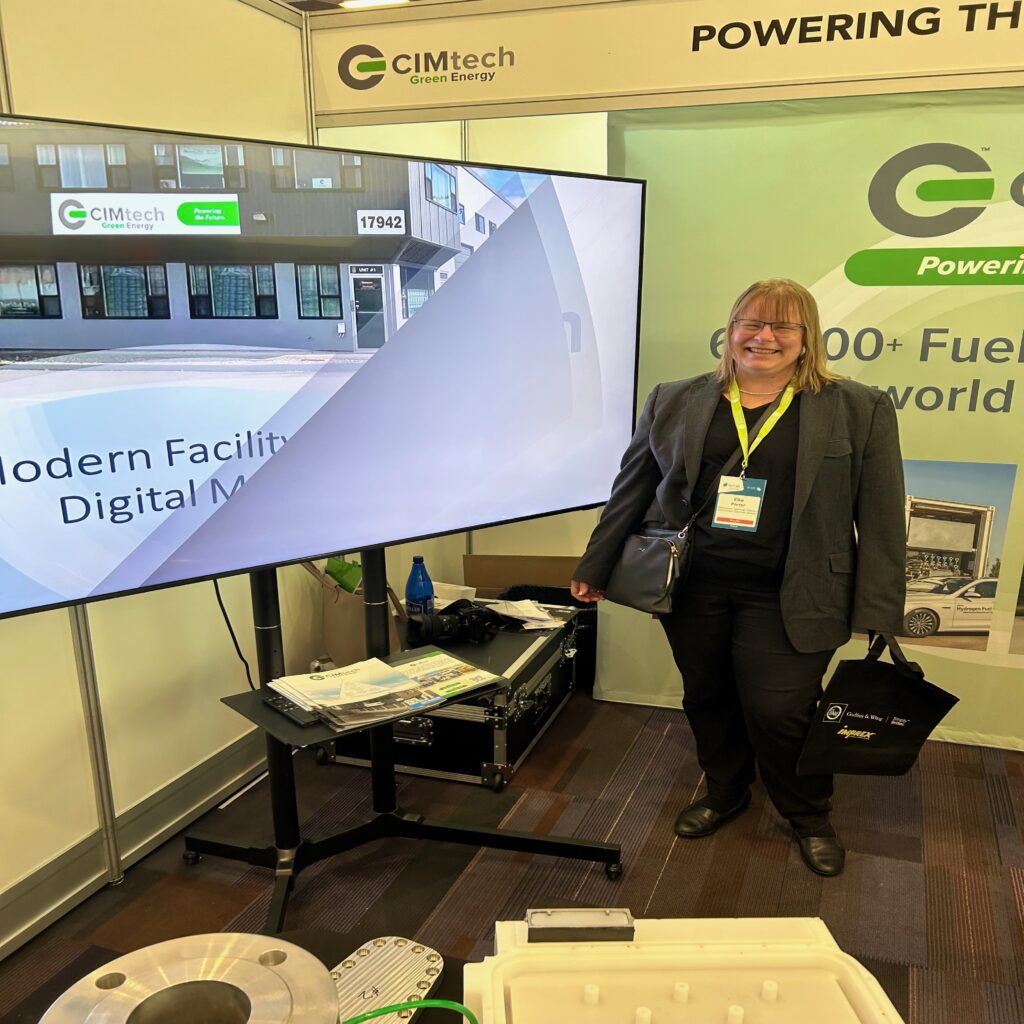
The German Pavilion had 14 companies from Germany, such as:
cellcentric
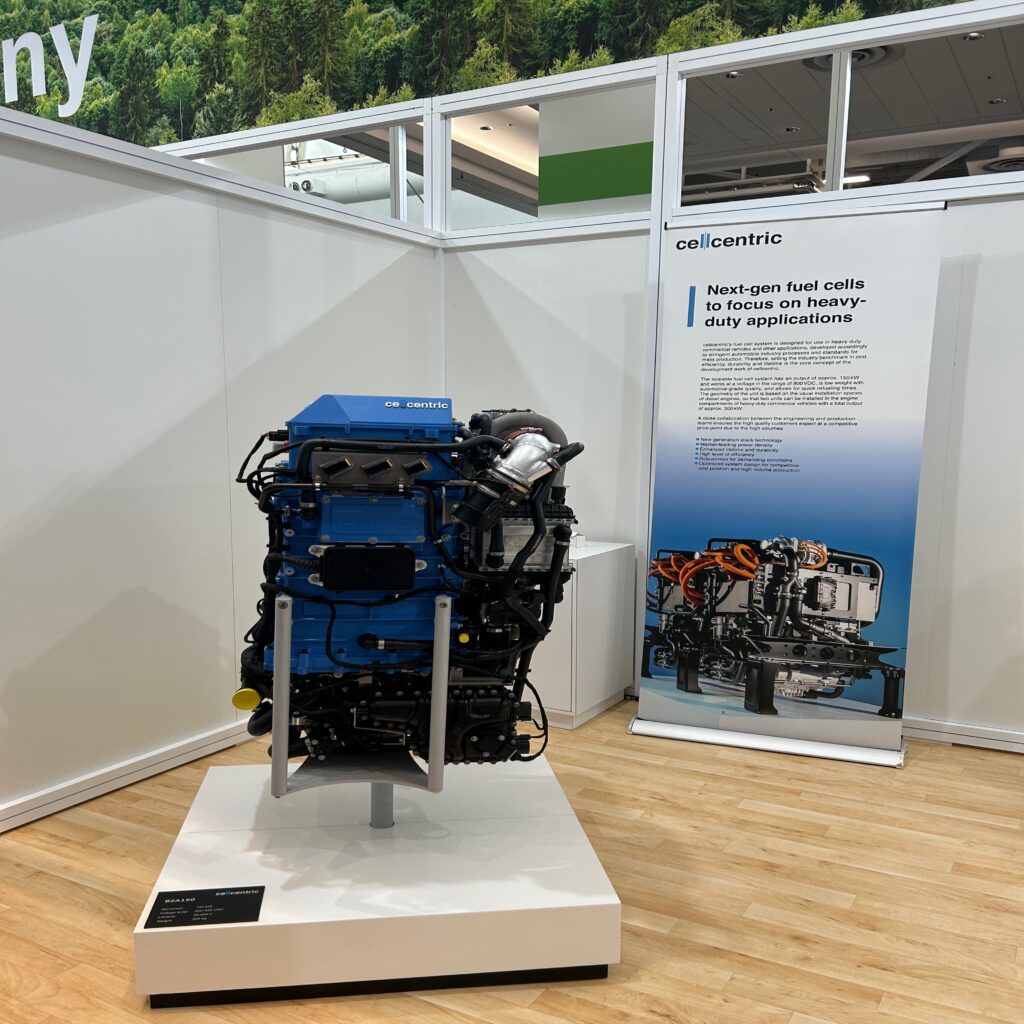



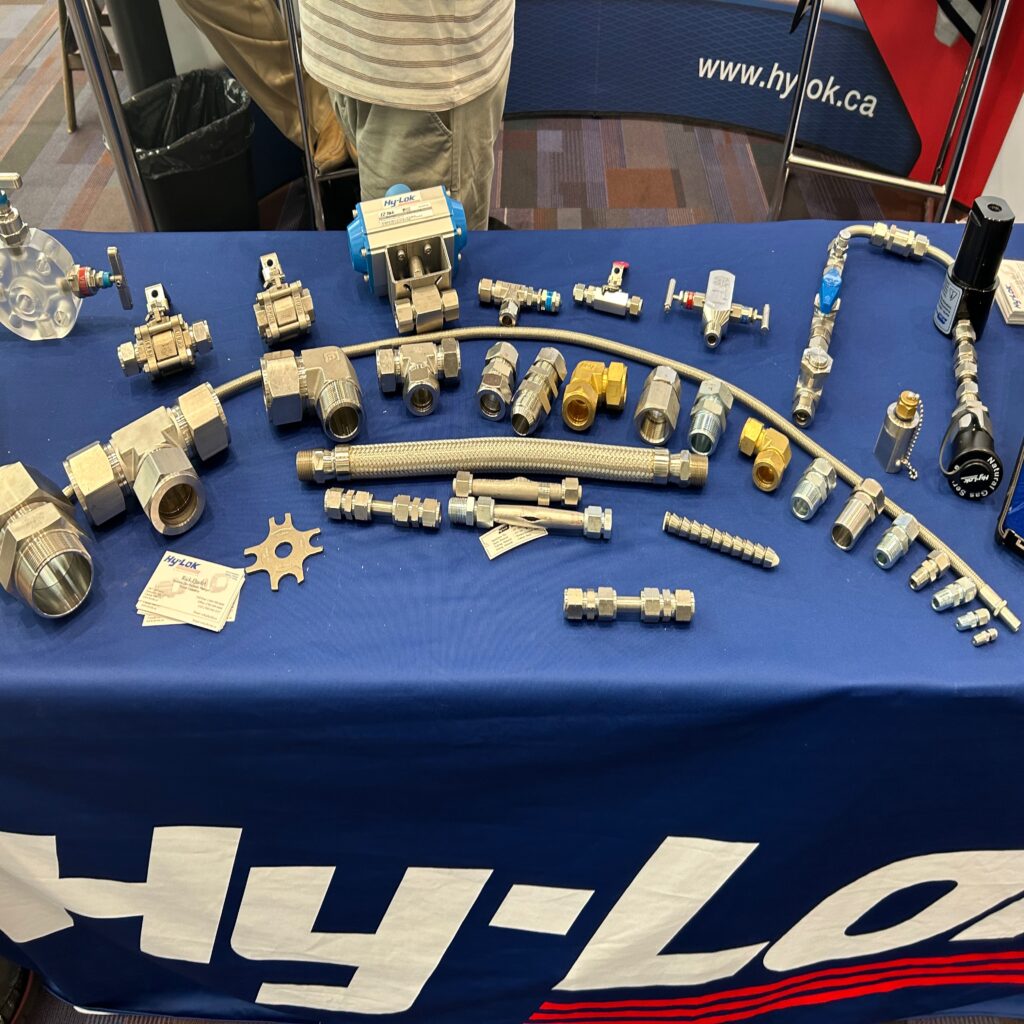
The Conference took place in the beautiful Vancouver Convention Centre East.
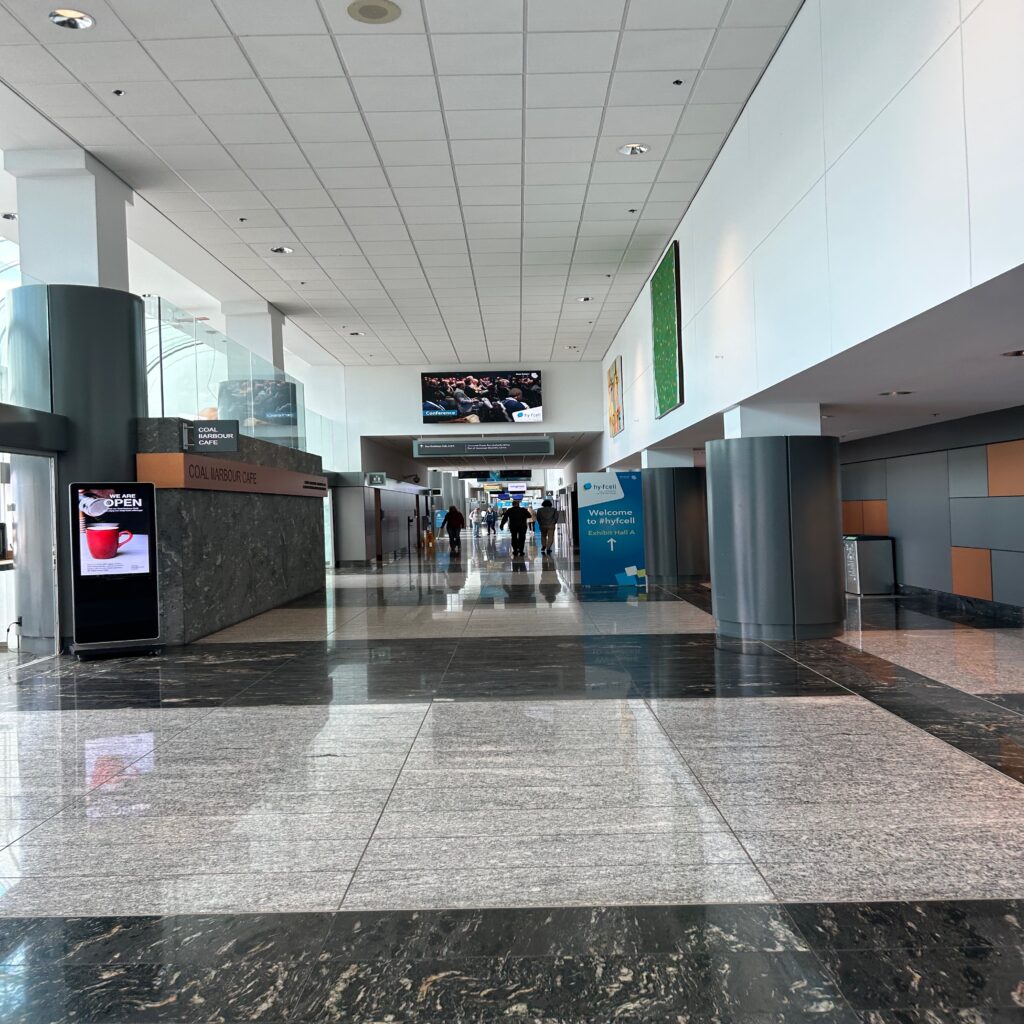
hy-fcell Canada 2024 brought together renowned international specialists to discuss solutions for clean energy with hydrogen and fuel cells. The two-day interactive conference program and international exhibition was complemented by a full day of technology tours the day before.
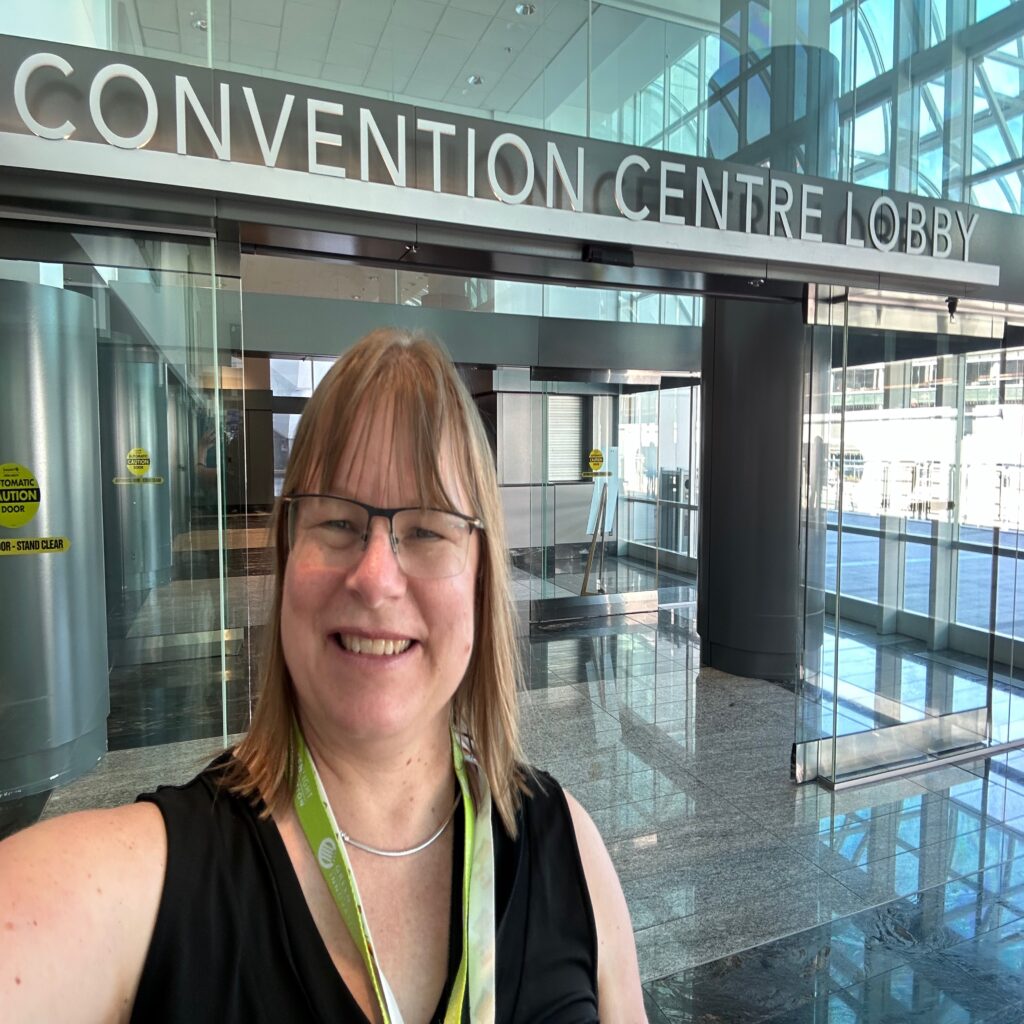
The Message from hy-fcell North America:









